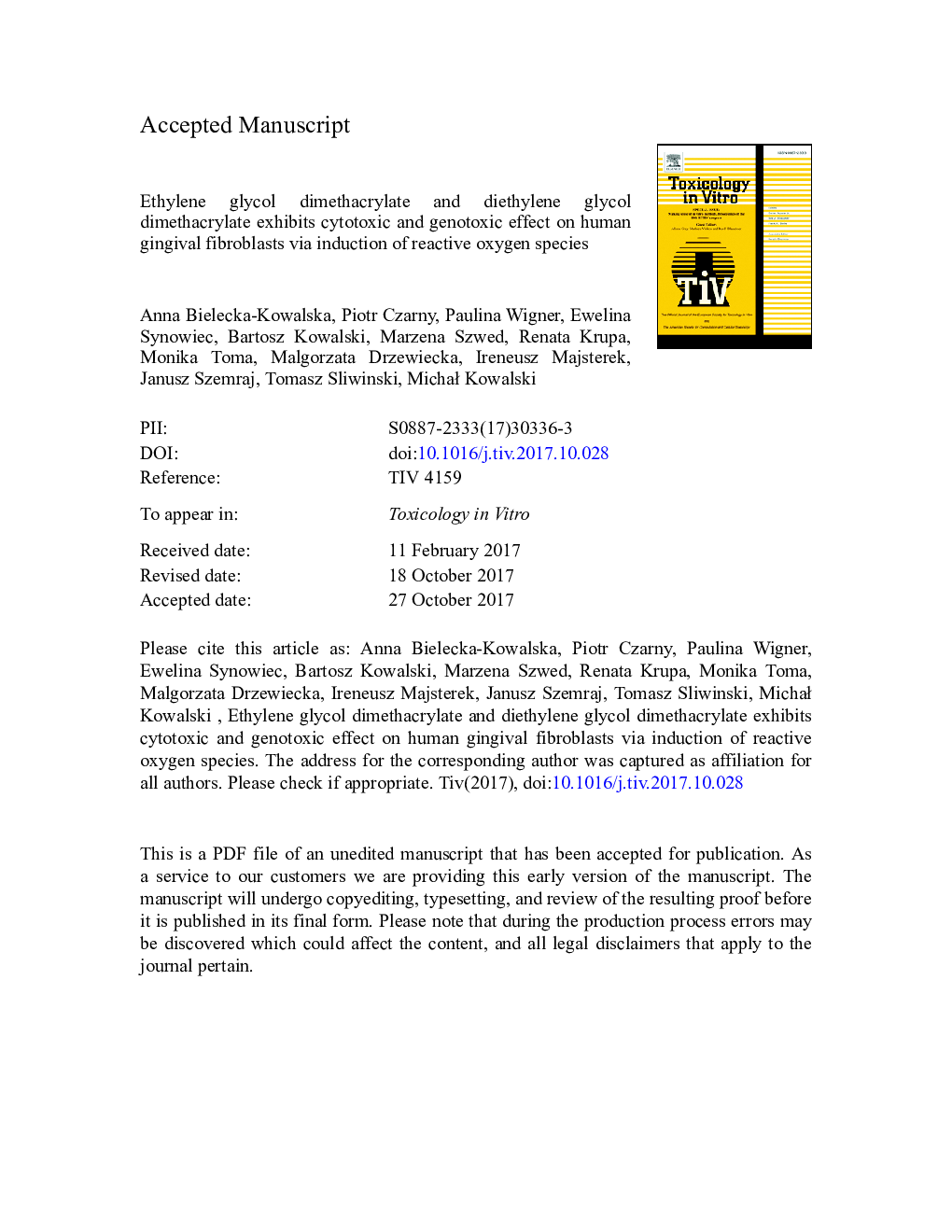| Article ID | Journal | Published Year | Pages | File Type |
|---|---|---|---|---|
| 8554039 | Toxicology in Vitro | 2018 | 34 Pages |
Abstract
Although methacrylic acid derivatives in their polymeric form are considered to be safe, insufficient polymerization and the release of monomers due to either mechanical or enzymatical factors can lead to their reaching millimolar concentrations in local tissue. The present study evaluates the effect of two methacrylate monomers - ethylene glycol dimethacrylate (EGDMA) and diethylene glycol dimethacrylate (DEGDMA) - on human gingival fibroblasts (HGFs). Both monomers were found to reduce cells viability in MTT assay, increase apoptosis and cause cell cycle arrest in G1/G0 phase. They also increased intracellular reactive oxygen species (ROS) production as measured by DCFH-DA and DHE probes and increased expression of GPx4 and SOD2. Both monomers increased DNA damage in comet assay. Moreover, HGFs were not able to repair those lesions within 120Â min of repair incubation. However, the monomers were not found to have any effect on the integrity of isolated plasmids. We postulate that EGDMA and DEGDMA exhibit their cytotoxic and genotoxic properties via increased production of ROS, which cause DNA damage, affect apoptosis, viability and cell cycle. Further studies are needed to better understand the properties of methacrylic acid monomers and to evaluate the risk that they cause for patients, dentists and dental technicians.
Keywords
Related Topics
Life Sciences
Environmental Science
Health, Toxicology and Mutagenesis
Authors
Anna Bielecka-Kowalska, Piotr Czarny, Paulina Wigner, Ewelina Synowiec, Bartosz Kowalski, Marzena Szwed, Renata Krupa, Monika Toma, Malgorzata Drzewiecka, Ireneusz Majsterek, Janusz Szemraj, Tomasz Sliwinski, MichaÅ Kowalski,
